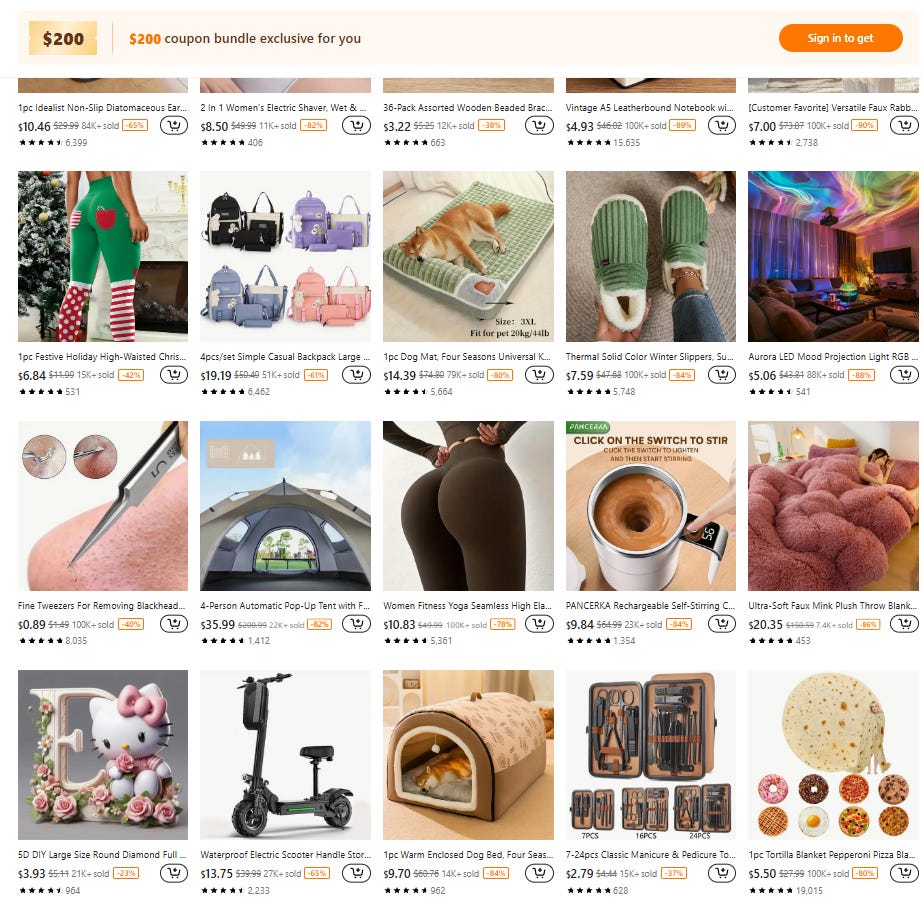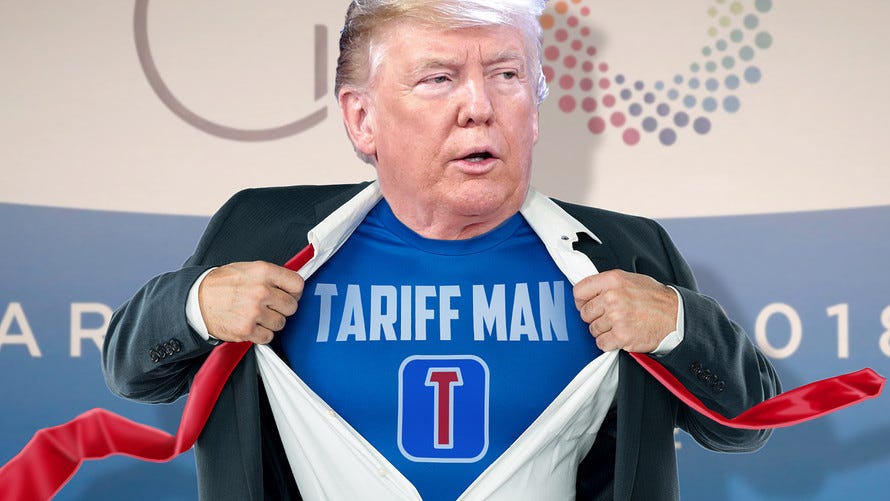Do Tariffs Cause Inflation?
Answering Googles #1 Most Searched Question on Tariff Policy from an economic Nationalist perspective.
“I do not prize the word cheap. It is not a word of inspiration. It is the badge of poverty, the signal of distress. Cheap merchandise means cheap men and cheap men mean a cheap country.”
25th President William McKinley
Say Goodbye to Cheap Junk
Many worry that if future and former President Donald Trump implements his 10% flat tariff plan, they might have to part ways with their beloved Temu treasure troves—goodbye $2 earbuds and $1 mystery gadgets!
They are correct to worry. Tariffs, or taxes levied on importers, will disrupt the capability of Chinese companies to dump cheap goods in the American market. “Drop-shippers” will need to find a new gimmick as cheap, low quality and knockoff Chinese goods will be a thing of the past. And good riddance!
Humble Junk-Merchants or Chinese Spies?
For those unaware, Chinese companies such as Temu/Shein/Ali-Baba run businesses using AI to scrape data and designs from the global marketplace, and use heavily automated systems and slave labor to mass produce cheap knock-offs of goods from boutique clothing to Stanley cups at prices pennies on the dollar. They lure consumers in with irresistible marketing and FOMO tactics, “Enjoy 90% off everything when you order within the next 10 minutes” — while often targeting consumers on the lower end of the socioeconomic spectrum.

Because these goods are shipped in from China from unknown manufactures (often using slave labor)1 when items arrive unlike expected or with severe problems, consumers are left without recourse. Furthermore, Temu for instance monitors all of its customers activity across all apps on their phone after the customer downloads their app. It also is able to change settings and make it nearly impossible to remove. Given the apps connection with the Chinese Communist Party itself, Temu with its access to user devices is a tool that can serve as a means of covert surveillance and future cyberspace attacks. 2
Considering that Temu spends close to 75% of its budget on marketing including heavy social media spending and even a Super Bowl ad (below) and that it runs a loss often of 30% per delivery, is it not fairly obvious Temu’s motive is not to sell cheap junk for a profit? “Temu is less a store you buy things from, and more a broker that facilitates trade between Western consumers and Chinese factories,” writes privacy advocate Fergus O'Sullivan. But really its more than that. Temu is a weapon of the Chinese Communist Party.
A Better Alternative
Instead of letting China disrupt our market, spy on us, and create vulnerabilities by destroying key industries in the name of “cheap goods”, why don’t we incentivize production to occur within the United States? That is precisely what strong, protective tariffs do. Not only will protective tariffs stop the Chinese Communist Party in its tracks, the revenue generated can be reinvested into public infrastructure and other investments that would help to make the United States a better target for investment, and more importantly, a better place to live for its citizens. Americans deserve quality and community again, not more cheap crap.
It’s time to break free from dependence on cheap junk that compromises our economy, ethics, and security. By supporting protective tariffs, we can restore American industries, create better-paying jobs, and safeguard our future from foreign exploitation. Let’s prioritize quality, innovation, and community over temporary bargains. Together, we can build a stronger, more self-reliant America."
https://www.csis.org/analysis/looking-beyond-tiktok-risks-temu
https://www.texaspolicy.com/why-communist-china-connected-temu-is-worse-than-tiktok/





You hit the nail right on the head with this one. Tariffs aren’t just important for jobs or to protect industries, but are critically important for our national security. I’m subscribing to your channel, keep it up. W.